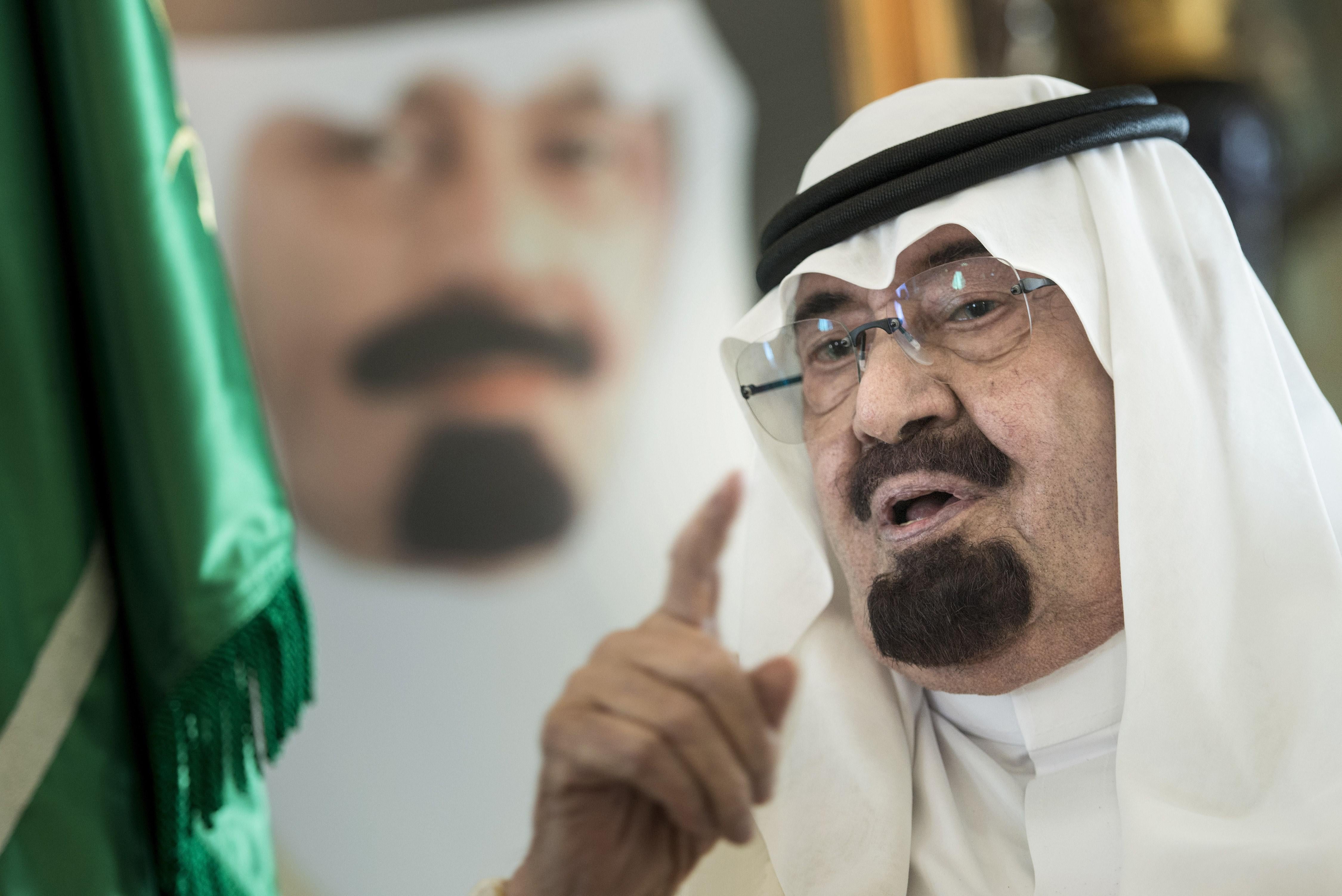Saudi King Abdullah Bin Abdulaziz has died, according to Saudi Arabian state TV. The news of the King’s death ricocheted around social media Thursday but was initially denied by journalists and other members of the Saudi royal family. King Abdullah was admitted to the hospital last month for pneumonia, and an announcement of the leader’s death came early Friday (local time). King Abdullah, thought to be in his 90s when he died, will be succeeded by his brother Crown Prince Salman. You can read more from Slate’s Joshua Keating on the palace politics of Saudi succession.
King Abdullah was seen as a modernizing force in Saudi Arabia when he came to power following his brother’s death in 2005. The new king had been the country’s de facto leader since 1995, after his brother, then–King Fahd, suffered a debilitating stroke. Along with pushing incremental reforms that gave greater opportunity to women in the kingdom, Abdullah advocated a more assertive Saudi presence in the Middle East—attempting to counter Shiite Iran’s influence.
Here’s more from the Associated Press on Abdullah’s loosening of restrictions placed on women:
Abdullah for the first time gave women seats on the Shura Council, an unelected body that advises the king and government. He promised women would be able to vote and run in 2015 elections for municipal councils, the only elections held in the country. He appointed the first female deputy minister in a 2009. Two Saudi female athletes competed in the Olympics for the first time in 2012, and a small handful of women were granted licenses to work as lawyers during his rule.
One of his most ambitious projects was a Western-style university that bears his name, the King Abdullah University of Science and Technology, which opened in 2009. Men and women share classrooms and study together inside the campus, a major departure in a country where even small talk between the sexes in public can bring a warning from the morality police.
The changes seemed small from the outside but had a powerful resonance. Small splashes of variety opened in the kingdom — color and flash crept into the all-black abayas women must wear in public; state-run TV started playing music, forbidden for decades; book fairs opened their doors to women writers and some banned books.
“Abdullah’s reign was a constant effort to balance desert traditions with the demands of the modern world, making him appear at times to be shifting from one to the other,” the New York Times writes. “He contested Al Qaeda’s militant interpretations of the faith as justifying, even compelling, terrorist acts. He ordered that textbooks be purged of their most extreme language and sent 900 imams to re-education sessions. He had hundreds of militants arrested and some beheaded … But in at least two telephone calls he castigated President Obama for encouraging democracy in the Middle East, saying it was dangerous. And he showed no tolerance in his country for the sort of dissent unfolding elsewhere.”
*This post has been updated.
